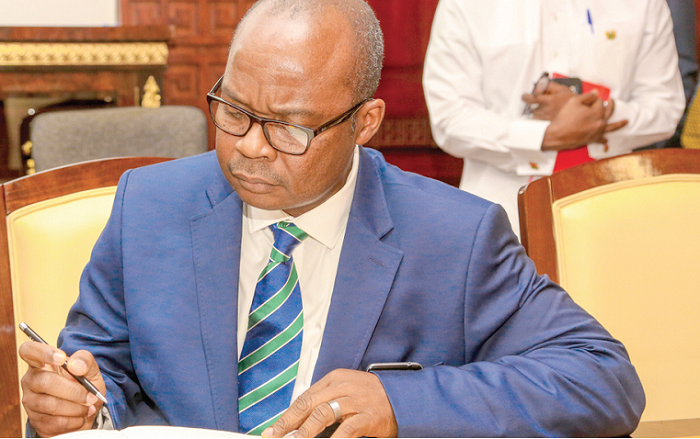Export proceeds in the first four months of the year overtook imports by 30.2 per cent, resulting in a balance of trade (BOT) surplus of US$1.15 billion within the period. This means the country sold more goods to the outside world than it bought in the first quarter.
The trade surplus, which is equivalent to 2.5 per cent of gross domestic product (GDP), is the best in more than a decade and strengthens hopes that the country’s BOT has successfully resumed a surplus trend after decades of consistent deficits.
The first trade surplus in the country’s most recent history was registered in January this year, when exports overtook imports by US$258 million, then resulting in a BOT surplus equivalent to 0.6 per cent of GDP.
However, data released by the Bank of Ghana (BoG) on May 21 showed that on year-on-year basis, exports rose by 44.1 per cent to US$4.92 billion in April, compared to imports, which declined by 11.6 per cent to US$3.78 billion.
This resulted in the US$1.12 billion BOT surplus in the first quarter of 2017 compared to a BOT deficit of US$935.7 million (2.2 per cent of GDP) in the same period last year.
Reasons for surplus
The firm growth in exports within the first four months of 2017 was the cumulative effect of a decline in oil and non-oil imports as against a strong growth in gold and oil exports.
The data showed that proceeds from gold and oil exports ended the quarter at US$2.2 billion and US$845.3 million respectively, compared to US$1.3 billion and US$212.3 million in the same period last year.
Impact on cedi
The April 2017 trade surplus is the fourth of its kind, since the BOT reverted to a surplus position in January this year.
After opening 2017 at US$258 million, the trade surplus improved to US$573 million in February this year, before doubling to US$1.15 billion in April.
Although too early to say, an Economist and Senior Researcher at the Institute for Fiscal Studies (IFS), Dr Said Boakye, explained that a BOT surplus could ultimately impact positively on the foreign exchange.
Given that the movement of the cedi is always the effect of the balance of payment, Dr Boakye said a trade surplus was a good sign that “things will improve in the long term”.
“If the country has started seeing surpluses in the trade account, it is a good sign,” he said, citing the country’s penchant for posting BOT deficits.
Although the income and current accounts have recorded surpluses sparingly, the BOT has always been on the deficit, resulting in an overall balance of payment deficit.
However should the current trend in the trade balance continue, the senior researcher at IFS said the overall balance could drift towards a positive point and that would impact positively on the performance of the cedi.
A former Deputy Governor of the BoG, Mr Emmanuel Asiedu-Mante, admitted that the trade surplus could impact positively on the foreign exchange “but in the distant future”.
“When you import more than you export, it weakens your currency. Now that we are beginning to import less, it should help the currency to stabilise but that will take some time,” he added.
As of April this year, the cedi had lost one per cent of its value to the US dollar compared to a zero rate of depreciation in the same period last year. Against the British pound and the euro, the cedi lost 5.8 per cent and six per cent respectively compared to a gain of 1.6 per cent and a decline of 3.4 per cent in April 2016.
That notwithstanding, Dr Boakye of the IFS said the decline in imports, which helped to strengthen the BOT position, could be reversed in the coming months, thereby muting the improvement in the trade surplus.
Credit: Graphic



